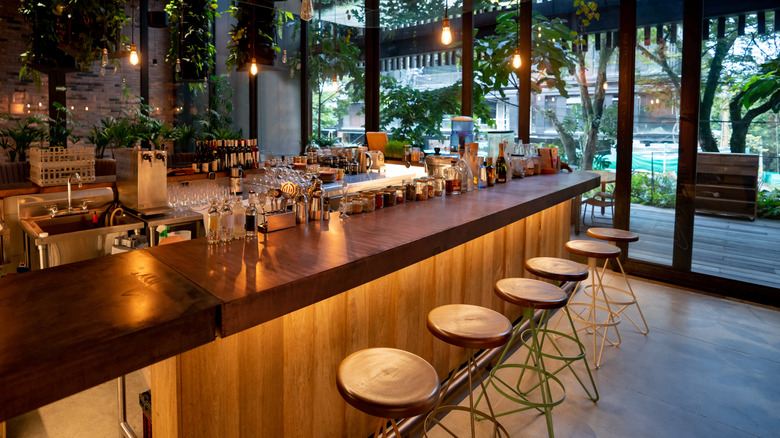Restaurants Expect To Take A Hit This Summer As Inflation Takes Its Toll
While some people might be longing to leave the house, it seems that inflation continues to keep people tethered to the home kitchen. As noted by Zero Hedge, a recent post from Michael Halen of Bloomberg Intelligence asserts that consumers will be opting out of meals at fast-casual restaurants. Several economic factors are pushing guests to choose less costly dining options if they choose to eat out at all.
Based on his data findings, Halen believes that consumers will move away from restaurants like The Cheesecake Factory, Texas Roadhouse, and similar offerings because they do not have the funds to support that dining expense. From wanting to avoid additional credit card debt to continued inflation concerns, consumers are looking for less expensive options when choosing to eat away from home. It does not mean that all restaurant purchases have been cut from the budget. Rather, it is a "trade-down" to less expensive quick-service restaurants.
This idea of "consumer spending buckles" is a reflection of declining wages and rising credit card debt. Although some people might have dipped into savings to offset the economic downturn, those funds are drying up. When faced with the choice of want versus necessity, one category has to give way. Although fast casual restaurants might try to combat the potentially empty tables through special promotions or discounts, consumers need to appreciate the expected value if they choose to pay that tab.
Does recent restaurant sales data reveal the whole dining picture?
Even though there has been some positive economic news on price reductions, stabilizing inflation, and supply chain improvements, the delicate balance between consumer spending and restaurant sales continues to be in flux. While some analysts project a potential summer spending dip, the National Restaurant Association showed that May 2023 data trended higher. Although the number was greater, a different story supported that percentage.
While the National Restaurant Association stated that "consumer spending in restaurants 8.0% during the last 12 months," the spending was not necessarily related to additional food purchased. A substantial part of that figure was due to rising menu prices. Simply stated, consumers will spend more when food costs more. When adjusted for inflation, sales decreased.
Although some consumers may want to venture out for a dining experience, their bank accounts may be unable to support that financial decision. The change in purchasing is not just limited to the restaurant space. From appreciating the value of private-label brands to stretching purchases beyond a single use, consumers are learning to work within their economic constraints. While the craving for that special restaurant meal might be present, consumers' wallets may prevent that feeling from being satisfied.

